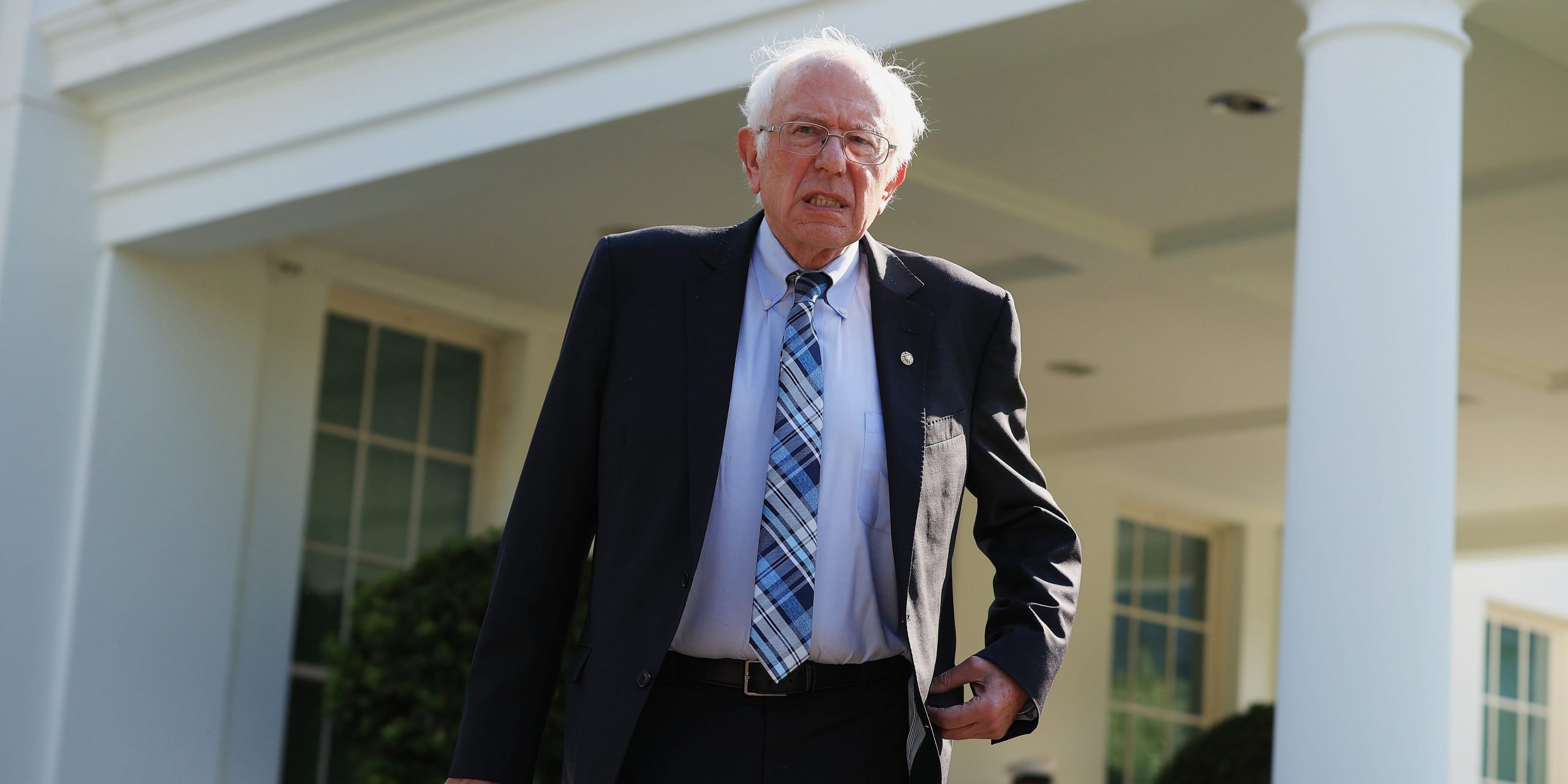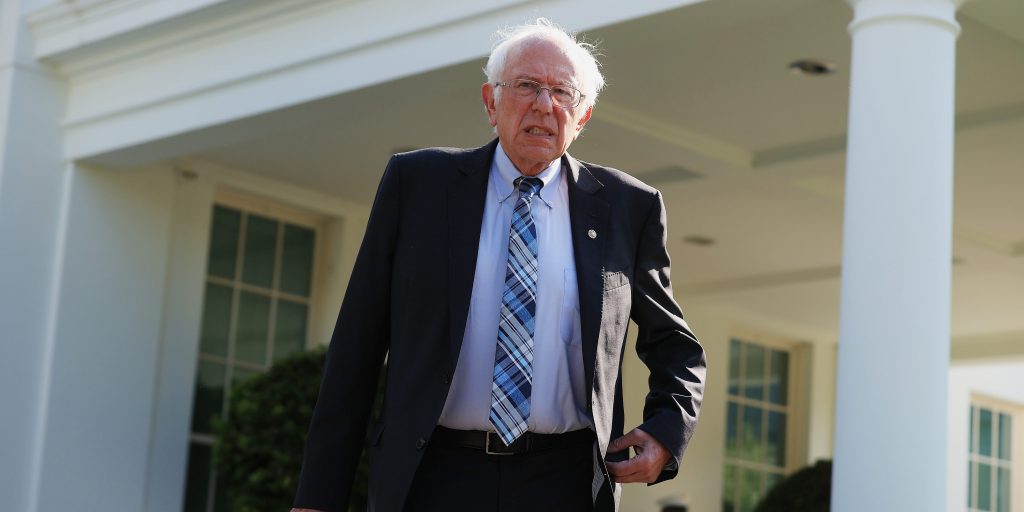
Chip Somodevilla/Getty Images
- Sanders wants a Democrat-only infrastructure bill that's larger than $3.5 trillion.
- "I'm going to fight to make that proposal as robust as it can be," he said outside the White House.
- Talks are in their early stages, and Insider spoke to several Democrats who weren't ready to commit.
- See more stories on Insider's business page.
Sen. Bernie Sanders on Monday said he's pushing Democrat-only infrastructure package larger than $3.5 trillion, as Senate Democrats kicked off a frenzied legislative period.
"I'm going to fight to make that proposal as robust as it can be," Sanders told reporters outside the White House after an afternoon meeting with President Joe Biden. He's pushed for $6 trillion in new spending and shot down a $3.5 trillion price tag that has been floated.
The price tag was pitched by Sen. Mark Warner of Virginia, according to two people familiar with the talks. Both were granted anonymity because they weren't authorized to speak about the negotiations.
Sanders also said the legislation was a way to show average Americans that the government was capable of improving their lives.
"We want to see a reconciliation bill which shows the working families of this country that government can and must work for them," Sanders said, referring to the legislative pathway Democrats will use to approve a bill with only a simple majority, skirting Republicans.
He added that the package Democrats are drafting could be among the most transformative since the New Deal era.
"What we are trying to do is transformative," he said. 'The legislation that the president and I are supporting will go further to improve the lives of working people than any legislation since the 1930s."
It comes as Sanders starts deploying a substantial amount of influence as chair of the Senate Budget Committee over the reconciliation process. The Vermont senator has a big role shaping the size and scope of Biden's tax-and-spending plans, and his committee is tasked with writing instructions on federal spending and taxes to other Congressional committees.
Over the weekend, Sanders told The New York Times he's pressing for a party-line infrastructure package topping $3 trillion that includes housing, climate, childcare, and paid leave among other new initiatives. That could set up a clash with moderate Senate Democrats like Warner and Joe Manchin of West Virginia who favor a slimmer party-line bill. Manchin has expressed support in the past for a $2 trillion party-line bill that's fully paid for.
Given talks appear to be in their early stages, several Senate Democrats said they weren't ready to back Sanders' large price tag. They are racing to kick off the reconciliation process within the month, but a final bill wouldn't be passed until sometime in the fall.
Sen. Ron Wyden of Oregon, chair of the Senate Finance Committee, deflected when asked if he could support a package of that size. The panel is in charge of drafting the tax components that generate revenue for eventual infrastructure legislation.
"My colleagues and I have been talking all through the break," Wyden told Insider, referring to the two-week July 4 recess. "We're going to do some more talking."
Other Democrats also weren't ready to throw their support behind the hefty price tag pitched by Sanders.
"Depends on what it's spent for and how it's paid for," Sen. Jon Tester of Montana, a member of the bipartisan group that struck a $1 trillion bipartisan deal with Senate Republicans, told Insider.
Sen. Chris Coons of Delaware, a key Biden ally, demurred as well. "I'm very focused on getting to text on the infrastructure bill,' he said. "What matters more than the price tag to me is the contents and the details."
"To me, it's much more important to try to determine what's in the package than to start at a topline and work backwards," Sen. Angus King of Maine, an independent who caucuses with Democrats, said in an interview. "I'd rather say these are the things the country needs and that's the way I'm going to approach it."
Democrats hold a 50-50 Senate that relies on a tie-breaking vote from Vice President Kamala Harris. Every Senate Democrat must be onboard the party-line bill or else the effort collapses.

